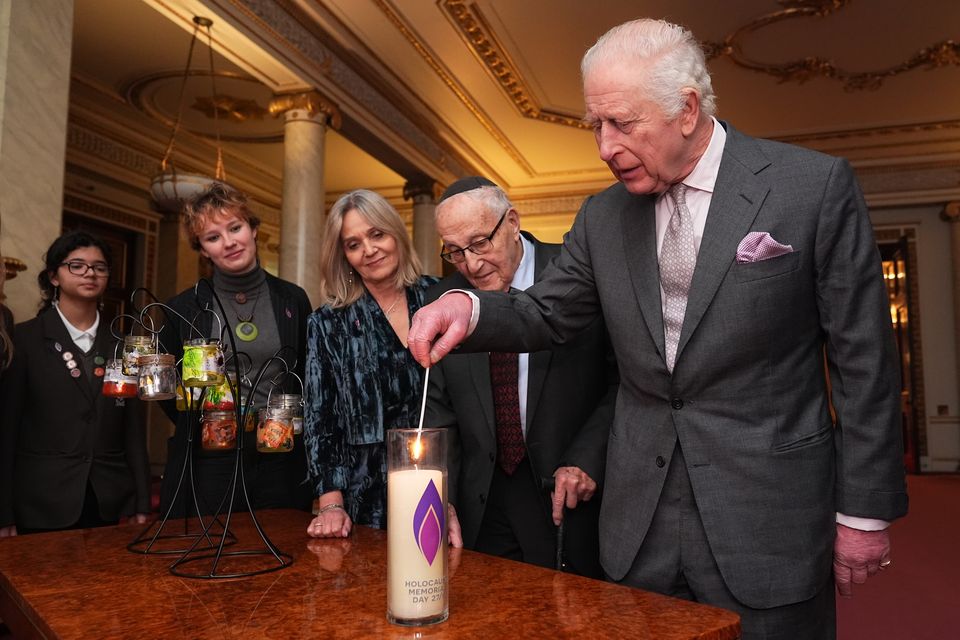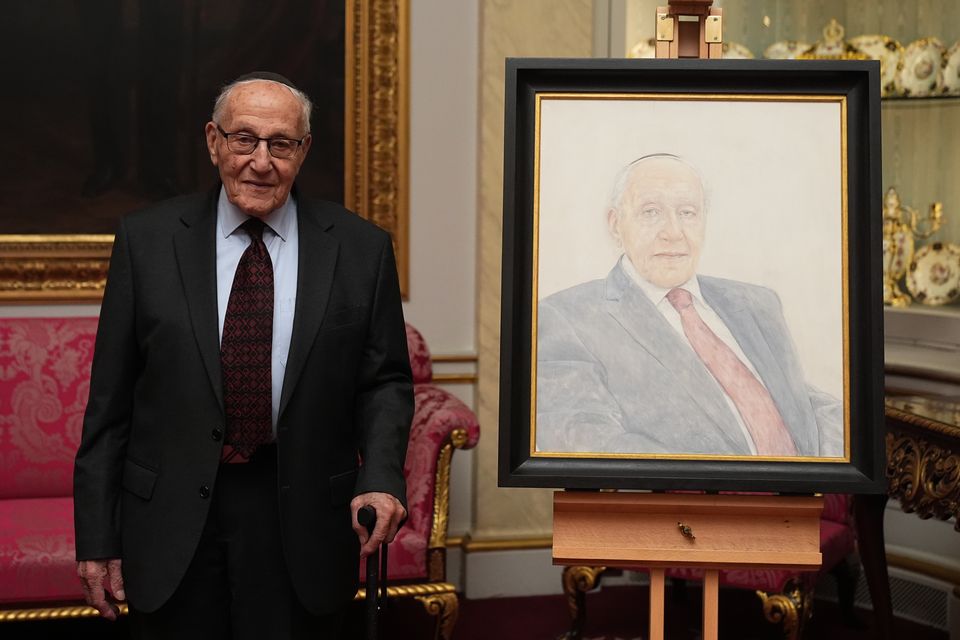The King has described his decision to mark the 80th anniversary of the liberation of the German Nazi concentration camp Auschwitz-Birkenau as “so important”.
Charles spoke about his forthcoming trip when he met Holocaust survivor Manfred Goldberg at a Buckingham Palace reception commemorating Holocaust Memorial Day on January 27.
Mr Goldberg, 94, who survived concentration camps, including Stutthof, and a death march when just a schoolboy, said the first thing the King mentioned was the trip, saying it was “now official” after it was announced earlier by Buckingham Palace.
King Charles III lights a candle during a reception marking Holocaust Memorial Day, when he said that the upcoming visit to Auschwitz-Birkenau as ‘so important’ (Aaron Chown/PA)
“I feel I must go for the 80th anniversary, (it’s) so important,” the King later told the elderly survivor who visits schools to give first-hand accounts of the Holocaust, and was described by the King as “very special”.
Charles will travel to Poland to join other dignitaries and Holocaust survivors invited to a service, held at the Auschwitz-Birkenau Museum and Memorial, commemorating the 80th anniversary.
Ahead of the event next Monday, Charles will meet members of the local community in Krakow and Poland’s President Andrzej Duda, Buckingham Palace has said.
Mr Goldberg said about the trip: “I find it almost difficult to put into words, and I’m not often lost for words.
“But I think it is an astounding affirmation by His Majesty that he fully understands the colossal injustice and atrocity that was perpetrated against Jewish people during the Holocaust.
“And he seems to have made it an active component of his life to do what he can to ensure that people become aware.”
Holocaust survivor Manfred Goldberg poses beside a portrait of himself during a reception marking Holocaust Memorial Day at Buckingham Palace (Aaron Chown/PA)
Mr Goldberg added: “He, like me, is trying to spread knowledge that once people understand what the Holocaust represents, I think every single one contributes to preventing it ever happen again.
“Silence never helps the oppressed, it always helps the oppressors.”
More than a million people, mostly Jews but also Poles, Soviet prisoners of war and other nationalities, were murdered by the Nazis at Auschwitz-Birkenau during the Second World War as part of the Holocaust, in which six million Jewish men, women and children were killed.
The camp was liberated by soldiers of the 60th Army of the First Ukrainian Front opened the gates of Auschwitz concentration camp on January 27 1945.

